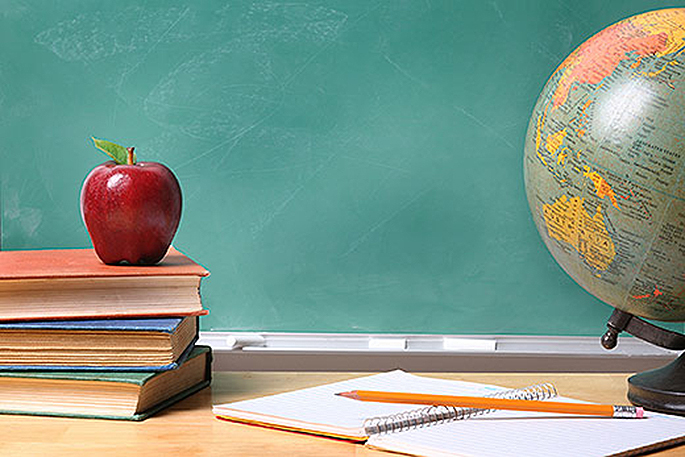An international test shows adults' literacy and numeracy has fallen significantly over the past eight years.
Results from the OECD's international Survey of Adult Skills in 31 OECD nations last year showed this country's scores were about average for literacy and below average for numeracy.
New Zealand's 16-65 scored an average of 260 for literacy, 256 for numeracy and 249 for "adaptive problem solving".
The scores were well-behind those of league table leader, Finland, with average scores of 296 for literacy, 294 for numeracy and 276 for problem solving.
They were also lower than the previous round of tests, with a 21-point drop in literacy and a 15-point drop in numeracy.
The report said many countries had lower scores than the last time the test was run, in 2015, but New Zealand's declines were among the largest.
A quarter of New Zealand adults were reading and writing at the lowest level of proficiency, double the figure recorded in 2015 and 13 percent performed at a high level, slightly fewer than in 2015.
In numeracy 28 percent performed poorly, up from 19 percent, while 12 percent were good at numeracy, down from 15 percent.
The report indicated that increased immigration had affected New Zealand's results.
"Between 2014 and 2022-23, the proportion of foreign-born adults of foreign-born parents grew by about 7 percentage points in New Zealand. Over this same time period, the declines in literacy proficiency were more pronounced for foreign-born adults than for native-born adults in New Zealand, and the literacy gap between the two groups widened.
It also found New Zealand's gender differences were larger than the OECD average in literacy but smaller in numeracy.
"On average, across participating OECD countries and economies, women displayed higher average proficiency than men in literacy (by 3 points), while men scored higher in numeracy (by 10 points) and adaptive problem solving (by 2 points). In New Zealand, a significant 12 points difference in favour of women was observed in literacy; no significant difference was observed in numeracy; and no significant difference was observed in adaptive problem solving."
The report said in all countries higher levels of education were associated with greater proficiency in literacy, numeracy and problem solving.
"In New Zealand, among adults aged 25-65, those with tertiary education scored 29 points higher in literacy than those with upper secondary education (OECD average: 33 points), and those with upper secondary education scored 48 points higher than those with less than upper secondary education (OECD average: 43 points)," the report said.
The survey also measured differences between age groups.
"Older adults (aged 55 to 65) in New Zealand displayed lower proficiency than 25-34 year-olds in adaptive problem solving, and similar proficiency in literacy and numeracy. On average across OECD countries, adults aged 55-65 scored below 25-34 year-olds in all domains (by 30 points, in literacy). Skill gaps between older and younger adults could reflect ageing effects, but also differences in the quality and quantity of education and training across generations."
The report said 33 percent of New Zealand workers were over-qualified for their job, compared to the OECD average of 23 percent, and 34 percent were over-skilled.
"About 10 percent of workers report that some of their skills are lower than what is required for their job (OECD average: 10 percent). In New Zealand, they often say this is because they need to improve their computer or software skills (50 percent), followed by project management or organizational skills (39 percent)," it said.
"In OECD countries, adults who are overqualified for their job incur significant economic and social costs. This is less the case in New Zealand: on average, their wages are 17 percent lower than peers in well-matched jobs who have similar educational attainment (OECD average: 12 percent lower). However, they are not significantly less likely to report a high level of life satisfaction (OECD average: 4 percentage points less likely)."



4 comments
Worried
Posted on 11-12-2024 19:30 | By Saul
A dumb nation has serious consequences for the future!
Instead of Tauranga council spending nearly $130 million on historical cr@p let's invest in our kids!
Hey @Saul
Posted on 12-12-2024 08:18 | By Howbradseesit
Its not rate payers nor TCC's responsibility to fund our kids education.
This is a much bigger issue than our regions to bare.
The Master
Posted on 12-12-2024 13:02 | By Ian Stevenson
@ Howbradseesit
You have missed the point, the level of measuring highlights the same issue.
A lot of money spent on nonsense and nothing to show for it, do you get it?
Responsibility
Posted on 14-12-2024 13:35 | By morepork
PARENTS: Need to make sure their kids are not only "educated", but also able and capable to deal with life. Some generations of "Nanny State" have come to expect they will be "looked after" and are unable to make decisions for themselves.
KIDS: Have to understand that life is not JUST self-indulgence, and living in a community brings a responsiblilty to that community. Civics and citizenship should be taught and discussed in schools. A self-reliant approach to life should be fostered, with help and guidance from parents and communal organizations. Helping others in the community should be encouraged and recognized. Travel and experience-broadening should be valued and helped where possible. We want our kids to have a broad world view and to be as capable as we can feasibly make them.
FUNDAMENTALLY: EVERYONE in our society has EQUAL LEGAL value and we should celebrate diversity.
Leave a Comment
You must be logged in to make a comment.